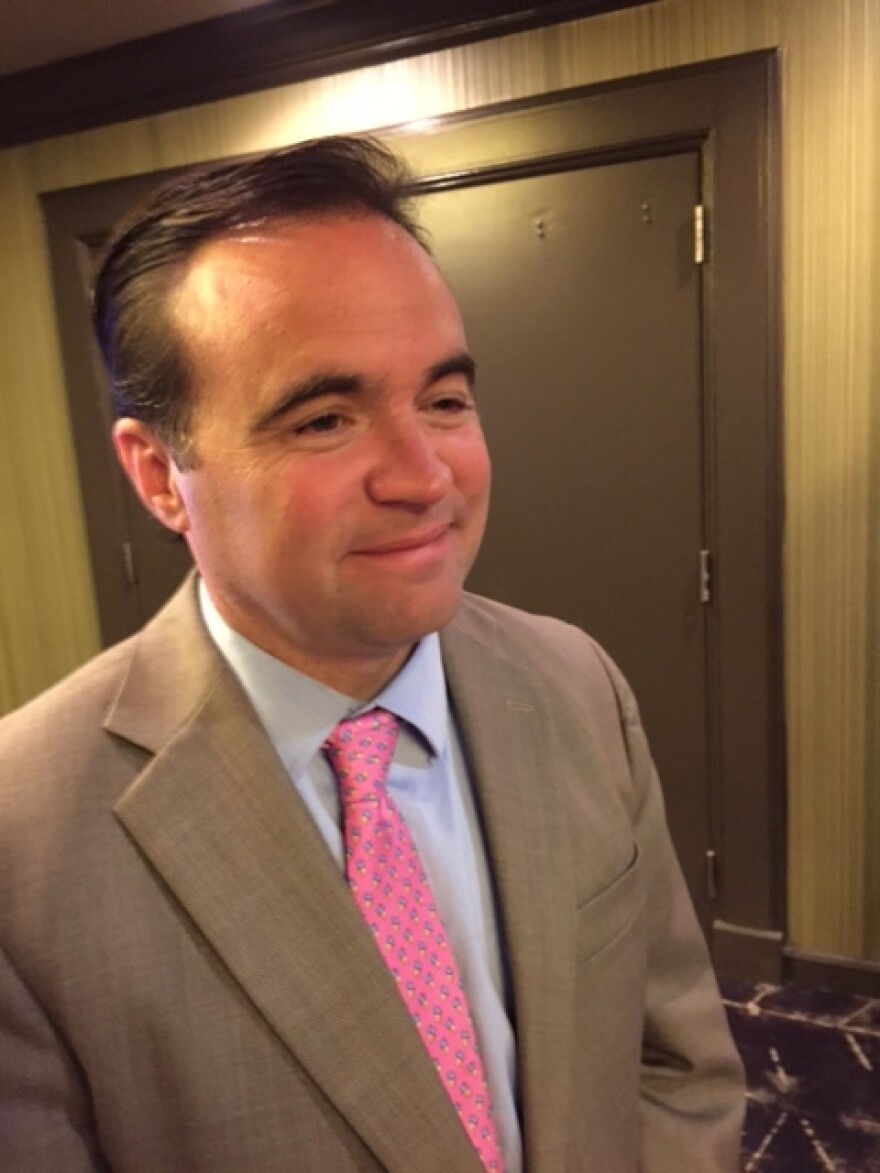John Cranley was only 26 in 2000 when he burst on to the political scene, taking on Republican Steve Chabot in the First Congressional District, losing with 45 percent of the vote.
Six years later, he tried again, taking on Chabot in a another race where he lost with 48 percent of the vote.
A graduate of St. Xavier High School, Cranley has an impressive academic record – a magna cum laude graduate of John Carroll University in philosophy and political science and degrees from both the Harvard Law School and the Harvard Divinity School.
From 2000 to 2009, Cranley, raised in Price Hill, was on city council. He left in 2009 so he could work as a developer on the Incline District project and avoid a conflict of interest. He also went to work as an attorney at Keating, Muething & Klekamp.
When 2013 rolled around, Cranley was ready to return to politics. He took on fellow Democrat Roxanne Qualls, a former mayor who was serving on council.
Qualls was considered the favorite in the race, but Cranley ran an aggressive campaign and ended up winning with 58 percent of the vote. He won on a promise that he would end the then-still-in-the-works streetcar project – a promise that, ultimately, he was unable to keep.
When you talk to Cranley about his life, he becomes very passionate about his work as the co-founder of the Ohio Innocence Project at the University of Cincinnati College of Law. That project has freed 23 people wrongly-convicted of felony crimes.
Cranley was administrative director of the of the Innocence Project from 2002 to 2006.
Cranley's wife, Dena, is the daughter of immigrants from Jordan, Suhaila and Beshara David, who founded the Gold Star Chili chain. The Cranleys live in Hyde Park and have a son, Joseph.
Cranley on the issues:
When asked by WVXU about what may be the city's biggest problem in the short term – plugging a $25 million budget gap between now and June 30, when council must act on a new budget – Cranley had little to say. He's waiting for City Manager Harry Black to unveil his budget proposal in mid-May before weighing in.
But he does say the city is being handcuffed by the Ohio General Assembly and Gov. John Kasich, who, in Kasich's first term, slashed the Local Government Fund and did away with the estate tax, two important sources of revenue for Ohio cities and townships
"This governor and the general assembly have been terrible to local governments,'' Cranley said. "Not just cities, but townships too. Cutting those funds has cost the city $30 million a year, on average."
And, Cranley said, with the new administration in Washington and Republicans in control of the Congress, the city could soon be dealing with substantial cuts in federal funds.
Kasich and the Republicans in the legislature seem unlikely to restore those funds, but Cranley said "we're going to fight." He and Dayton Mayor Nan Whaley have formed an "Ohio Mayors Alliance" of mayors of the top 30 cities in the state to lobby and to put pressure on the candidates in next year's gubernatorial election to restore the cuts.
"Sometimes there is this sense from Washington and Columbus that somehow they are doing us a favor by giving us any revenue,'' Cranley told WVXU. "The reality is we are net donors to the state and federal governments. We are not welfare recipients. Those are our tax dollars and we get back less, far less, than we send to Washington and Columbus."
Cranley said that as mayor, his first priority has been the delivery of basic services – particularly police and fire protection. That, he said, would continue in a second Cranley term.
Cranley said he does not believe that the problem of crime and violence on the streets can be solved only by investing in social programs that create opportunities for young people that will keep them from drifting into a life of crime.
"We need a hard and a soft strategy to fight crime,'' Cranley said.
Putting more police on the streets is the "hard" part; and that has happened under his watch, Cranley said.
"Ultimately, a more socially just city will lead to less crime,'' Cranley said.
He says he is responsible for tripling the amount of money the city invests in human services and job training.
His "Hand Up" initiative, he said, was created "to put hundreds of families into good paying jobs."
"But we also need a hard strategy, and that means investing in people to fight crime, which I believe we have done,'' Cranley said.
Cranley said that under his watch the city has invested money in the witness protection program.
"Tragically, often we have cases that go unsolved because witnesses are afraid to testify,'' Cranley said.
The key to making the city streets safe, Cranley said "is a combination of working to build a more just city and also triaging and trying to prevent crime with a hard strategy as well."
And what would a second Cranley term look like?
"We want to continue the progress we have made; in reducing poverty, adding jobs, expanding minority inclusion to African-American women-owned businesses and Latino businesses and we want to keep investing in neighborhoods," Cranley said.
And, of course, Cranley is adamantly opposed to any suggestion that the streetcar be expanded to Uptown.
"We can choose to invest more money in extending the streetcar or we can choose to invest in basic services,'' Cranley said. "I choose the latter."




